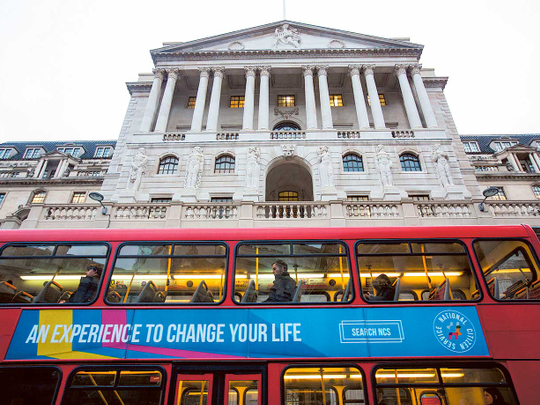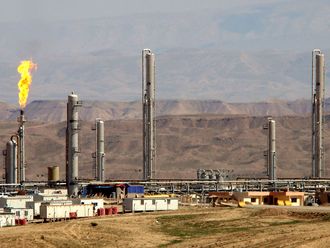
The Bank of England hiked interest rates for a fifth straight meeting and sent its strongest signal yet that it is prepared to unleash larger moves if needed to tame inflation.
The nine-member Monetary Policy Committee voted 6-3 to increase rates by 25 basis points to 1.25 per cent, with a minority of officials maintaining their push for a move double that size.
Still, the BOE hinted that it may join a growing global trend for larger hikes if inflation continues to soar, saying “it would be particularly alert to indications of more persistent inflationary pressures, and would if necessary act forcefully in response”.
Crucially, that language was endorsed by all the BOE’s voters, a departure from May when two declined to sign up to guidance that more hikes were needed.
The bank also raised its forecast for the peak of inflation this year to “slightly above” 11 per cent, reflecting the planned increase in the energy price cap in October, and said it now expects the economy to contract in the current quarter.
For now though the BOE, which was first major central bank to hike rates after the pandemic, is moving slower than some of its peers.
The US Federal Reserve raised interest rates by 75 basis points on Wednesday, the biggest increase since 1994. The Swiss National Bank also surprisingly hiked rates by 50 basis points earlier on Thursday.
But while the BOE is grappling with an inflation rate that has already hit a four-decade high of 9 per cent, officials are also concerned about an economic slowdown that is putting the UK at risk of recession.
Sterling fell to a low of 1.2042 after the BOE increased its benchmark rate by 25 basis points to 1.25%, before paring some losses. A minority of officials maintained a push for a move of double that size, in the wake of big hikes by the Federal Reserve and Swiss National Bank this week.
With the BOE sending its strongest signal yet that it's prepared to unleash larger moves if needed to tame inflation, the yield on UK two-year government bonds jumped as much as 15 basis points.
Data this week showed the economy contracted in April, and officials now predict it will shrink 0.3 per cent in the second quarter, after previously expecting a 0.1 per cent expansion. The longer-term outlook is also grim, with the OECD saying this month that it sees no growth in the UK next year - the worst outlook among major nations.
Those BOE members backing a 25-basis-point move this month, including Governor Andrew Bailey, said demand might be starting to slow. But, with prices soaring and officials seeing no signs of deterioration in the ultra-tight labor market, Michael Saunders, Catherine Mann and Jonathan Haskel all voted for a half-point increase.
Those members saw more prospect of a surprising resilience in demand or shortfall in supply. The minutes of the meeting said there were “mixed signs” on the extent to which the living standards squeeze was weighing on consumer spending. Confidence has dropped but “indicators had held up”.
Either way, the trend for higher rates is clear, threatening to heap more pain on an already creaking UK economy that is dealing with surging tax, fuel and food bills, along with political turmoil and the messy repercussions of Brexit.
Adding to the misery, next week railway workers are due to hold a three days of strikes, which economists say will cost the nation almost GBP 100 million.
The decision is also the first since Chancellor of the Exchequer Rishi Sunak announced a multi-billion-pound aid program to help households cope with soaring energy bills, allaying some concerns of the depth of the nation’s cost of living crisis.
The BOE estimated that package will raise the level of output by around 0.3 per cent, and inflation by 0.1 percentage point, in the next 12 months “with some upside risks around these estimates”.








